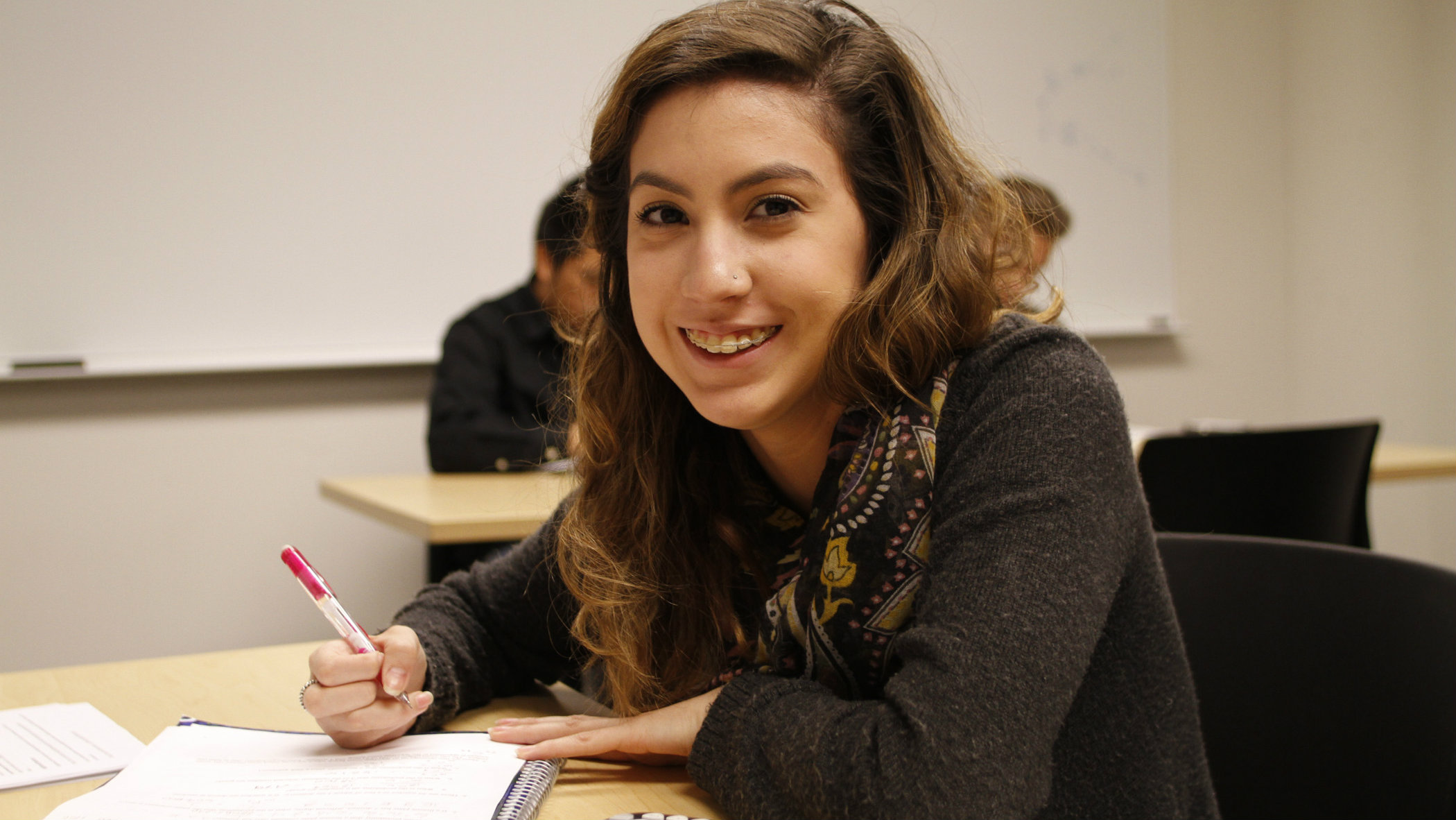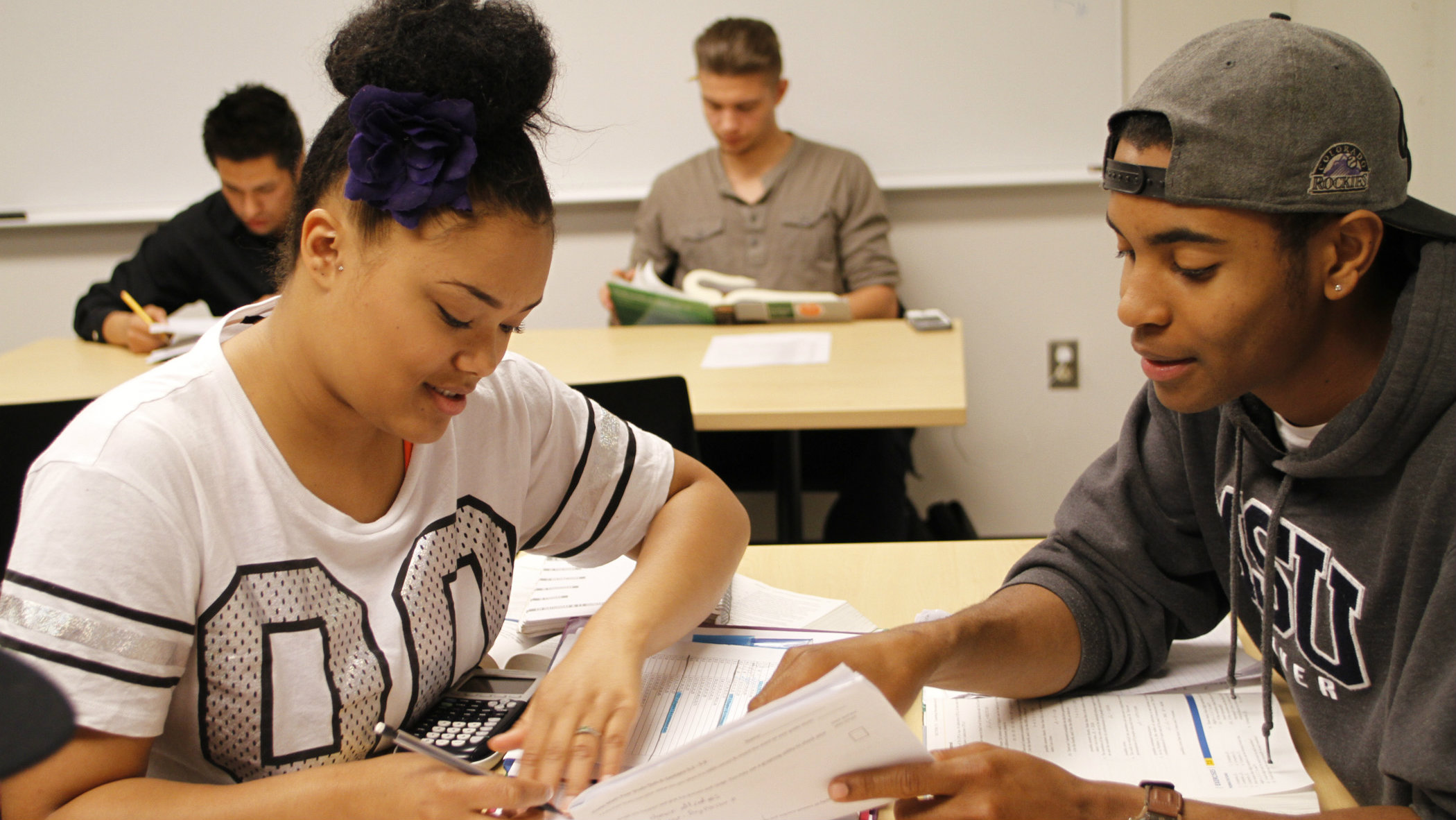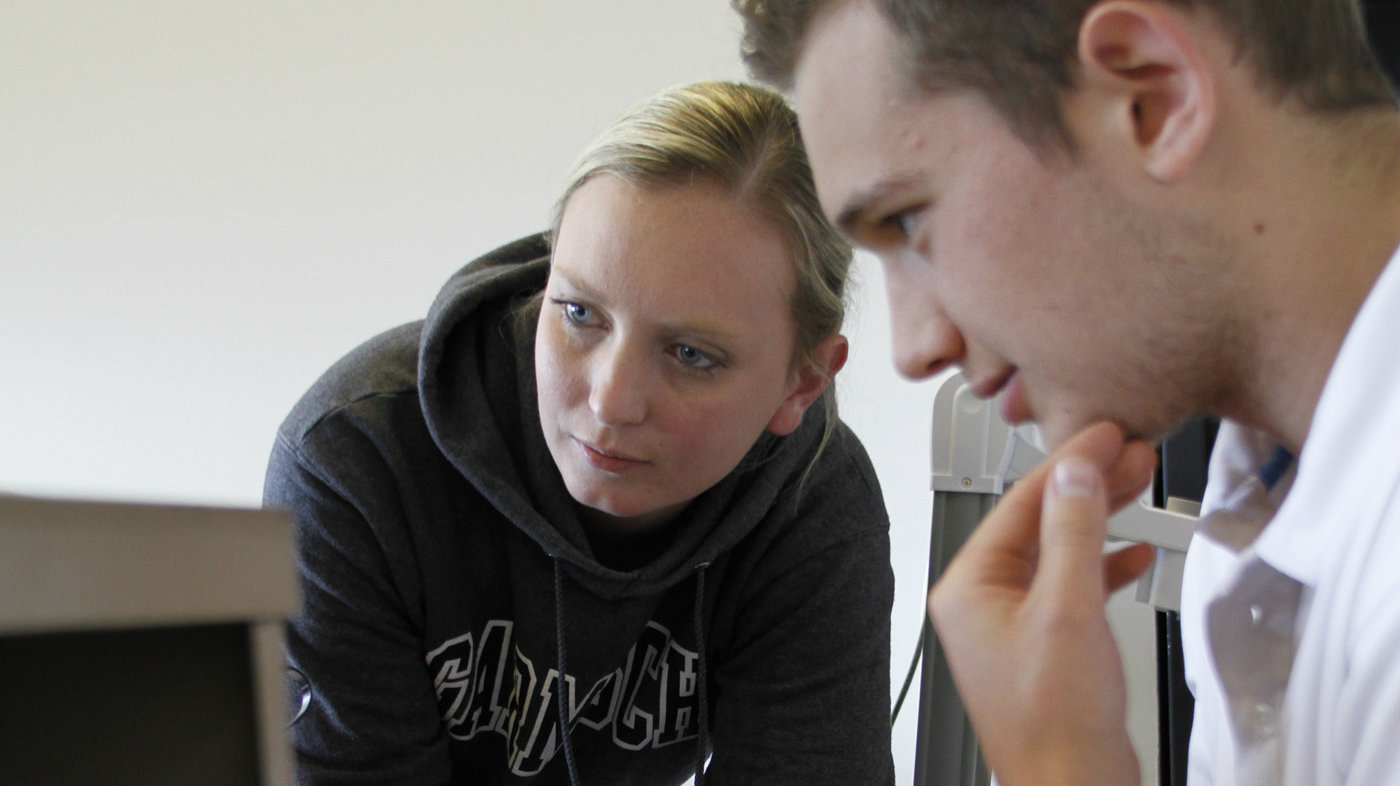 Of the 40 percent of high school graduates who attend college in Colorado, many need remedial classes before qualifying for entry-level courses.
Of the 40 percent of high school graduates who attend college in Colorado, many need remedial classes before qualifying for entry-level courses.
Placement exams for entry-level math or English courses are given statewide and students who miss the cut are required to complete “gateway” courses before ever setting foot on a university campus.
Thousands of students drop out of these remedial classes, costing the State of Colorado millions of dollars.
Metropolitan State University’s writing coordinator Jessica Parker says it’s frustrating that many students drop out before earning a single credit.
“I think part of its just stigma,” Parker says.
She says it’s demoralizing for students to be accepted and then have the university say: “you’re one of our students but not really, right now.”
According to Complete College America, Colorado is leading the way with legislation and policies aimed at getting students who are behind when they enter college into a cap and gown.
Metro is the first university to take advantage of a new Colorado law that allows colleges and universities to keep borderline students on their campuses.
Colorado's law allows colleges to structure new courses to give borderline students the boost they need to succeed while earning course credits.
One example is peer study in a math tutoring lab where students who are just below the “cut score” work collaboratively in small classes of 12 to figure out problems. If they get stuck, there is an instructor around to help.

In the old system, students like 19-year-old Kaitlin Carrasco would be in a remedial math class. Now she’s enrolled in the “gateway” math algebra class and attends peer study.
Carrasco says peer study instructor Kellie Zolnikov is able to explain certain concepts in a way her regular math instructor cannot.
Math used to be something Carrasco dreaded but now she says peer study is her favorite class of the day.
After one year of the program, more students in peer study pass their core math class than those who aren’t.
In writing and composition, almost 90 percent of borderline students with options besides remediation are passing the core English class. That’s compared to only two-thirds of regular students.
Metro’s Jessica Parker says stretch and writing lab, the two peer study classes in writing, are working.

“You’re learning the same things that all of our first-year writing students are learning,” Parker says. “But we’re giving you some extra opportunities for interactions with your peers and your professors.”
The stretch class is an introduction to writing but it's spread over two semesters instead of one. Roger Green, the stretch writing instructor, spends the first semester building community by letting students read and write about topics they’re comfortable with. Green says the more difficult challenges can wait until the second semester.
“I can give them assignments that would have alienated them the first two weeks of class,” Green says. “They would have dropped the class."

Students who score too low on the state placement exam for first-year courses now have an option.
The new law allows the university to enroll students in gateway classes based on a writing sample. That’s how 26-year old Audrey Rinkle got in but she also has to attend a writing lab class once a week.
On this particular day, Rinkle gives a class presentation on conjunctions and prepositions. At the end, she begins a pop quiz to test her classmates on their knowledge. When one of the students gives a right answer, Rinkle suddenly and exuberantly runs over to "high-five" him.
These students are excited about grammar and about learning something new to help improve their writing. After years of being lost, students are now around supportive peers and getting college credit.
Rinkle says she didn't feel psyched when she was assigned to writing lab but now really enjoys being in the class.
“I didn’t even know what annotating was before this class,” Rinkle says. “Now I’m understanding the text better in all my classes.”
That includes her English 1010 class, the “gateway” English class, where she’s taken on writers like Machiavelli and Frederick Douglass.
This is Rinkle’s fourth try at college and she’s sticking with it this time.
“I’m so happy right now,” Rinkle says with a laugh. “I’m learning so much.”









